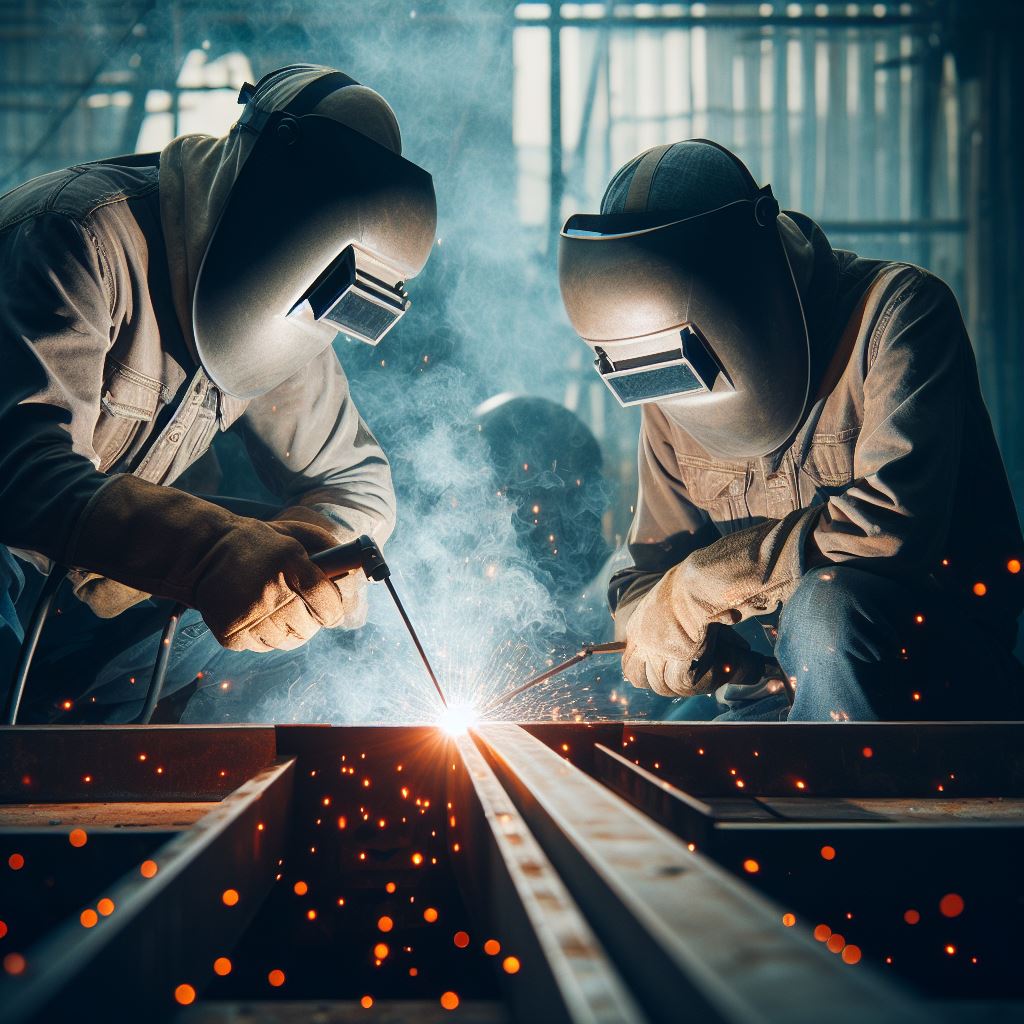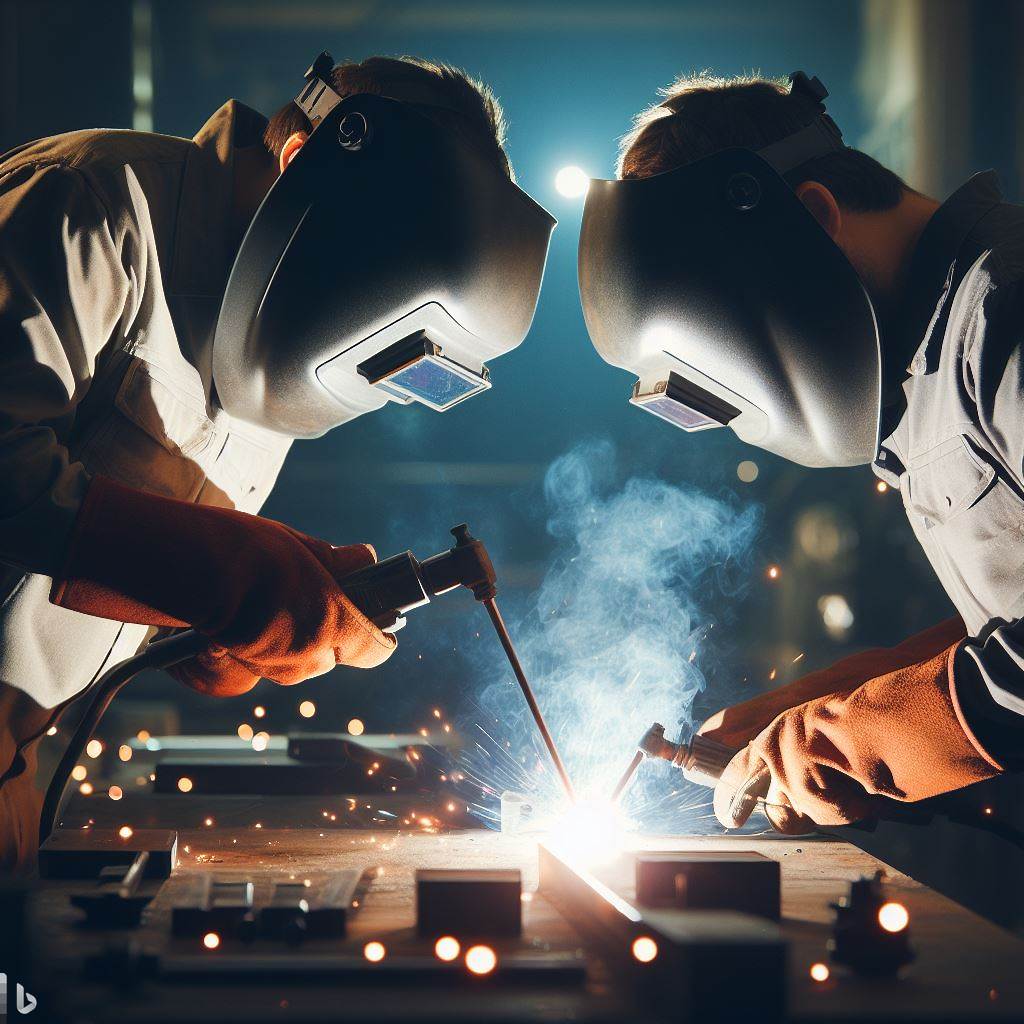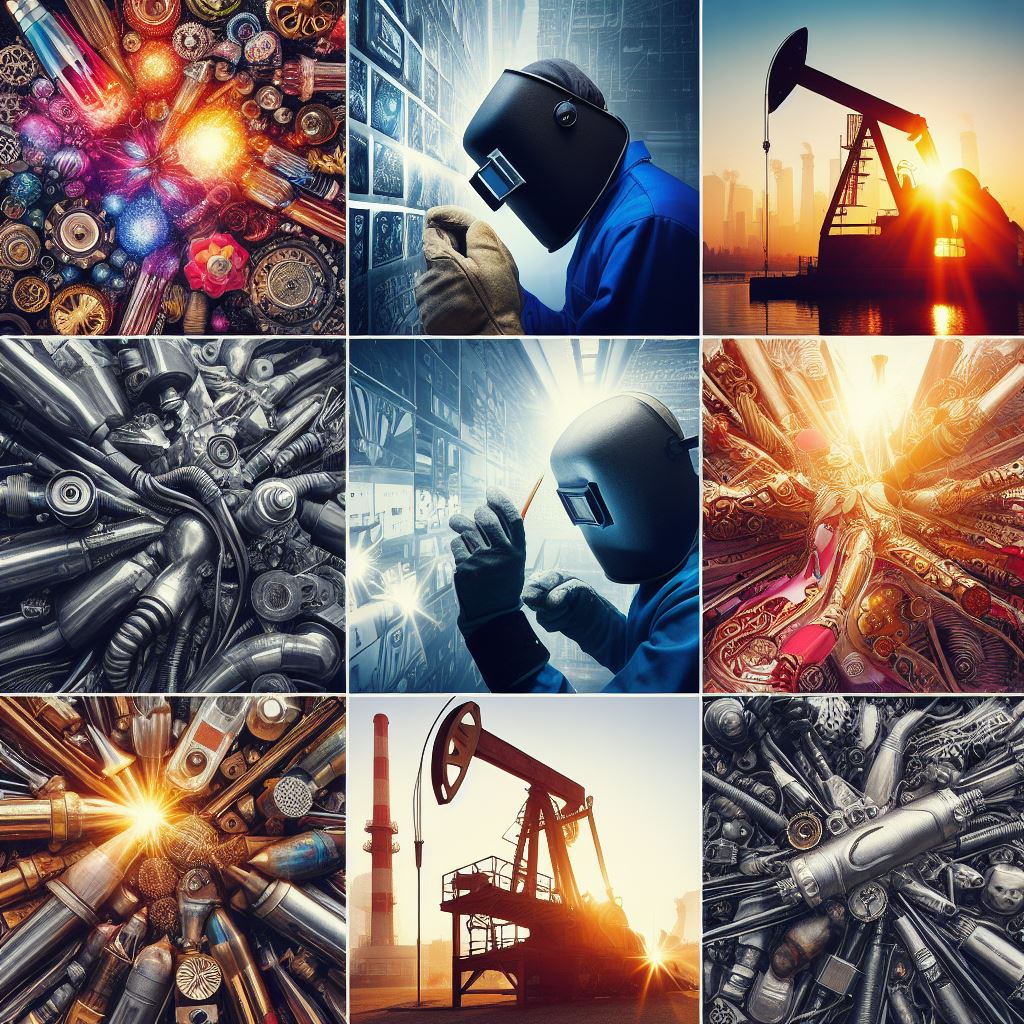Introduction
Welding is a widely recognized profession in the US that involves joining materials using heat.
Specialized welding techniques play a crucial role in various industries.
Brief overview of welding as a profession in the US:
Welding is a highly skilled trade that involves fusing metals together to create strong and durable structures.
It has been a vital profession in the US for decades, contributing to the growth of numerous industries.
Skilled welders are in high demand across sectors such as construction, manufacturing, and automotive.
They work with various materials like steel, aluminum, and titanium, ensuring the integrity and stability of the structures they create.
Welding offers a rewarding career path, providing opportunities for professional growth and financial stability.
As technology advances, the demand for welders with specialized skills becomes even more crucial.
Mention the importance of specialized welding techniques
Specialized welding techniques have become increasingly significant due to the complex nature of modern structures.
As industries evolve, they require welders who can adapt to new challenges and work with advanced materials.
Techniques like TIG (Tungsten Inert Gas), MIG (Metal Inert Gas), and submerged arc welding are gaining popularity in the US.
These methods allow welders to achieve higher precision, better control, and improved efficiency.
Moreover, specialized welding techniques are essential for working with exotic materials.
For instance, welding techniques like electron beam and laser welding enable the joining of dissimilar metals, expanding the possibilities for innovation in industries such as aerospace and electronics.
In fact, the profession of welding in the US is vital for the growth and development of various industries.
Specialized welding techniques are increasingly crucial as they allow welders to meet the demands of modern structures and work with advanced materials.
Overview of Specialized Welding Techniques
Definition and purpose of specialized welding techniques
- Specialized welding techniques refer to specific methods used in welding to achieve desired results.
- These techniques are developed to meet the unique requirements of various industries and applications.
- They involve using advanced equipment, tools, and materials to create strong and precise welds.
- The purpose of these techniques is to enhance the quality, efficiency, and durability of welded components.
- They also ensure the safety and reliability of structures and products that require welding.
Importance of staying updated with industry trends
- Being aware of the latest trends in specialized welding techniques is crucial for welders and industry professionals.
- Technology and industry standards are constantly evolving, and staying updated helps maintain competitiveness.
- New techniques are often developed to address emerging challenges and improve welding processes.
- Understanding industry trends allows professionals to adopt innovative techniques and tools, leading to better results.
- Keeping pace with advancements empowers welders to meet client demands and deliver high-quality work.
How specialized welding techniques contribute to improved efficiency and quality of welds
- Specialized welding techniques offer increased precision, resulting in higher-quality welds with fewer defects.
- These techniques minimize distortion, reducing the need for costly rework and ensuring accurate fit-up.
- They enable welders to work faster and more efficiently due to optimized welding parameters and processes.
- Using specialized techniques allows for better control of heat input, reducing the risk of material damage.
- Advanced techniques also support the welding of dissimilar materials, expanding the range of applications.
- Improved efficiency and quality lead to cost savings, as less time and material are wasted on rework.
- Specialized techniques help achieve welds that meet stringent industry standards and regulatory requirements.
- By adopting the latest techniques, welders can enhance their skills and stay ahead in the competitive market.
- Furthermore, specialized welding techniques contribute to the overall safety and reliability of welded structures.
- Using the right techniques ensures welds are strong and durable, reducing the risk of component failure.
In essence, specialized welding techniques play a vital role in the welding industry.
They enable welders to achieve high-quality, precise, and efficient welds that meet industry standards.
Staying updated with the latest trends in these techniques is essential for professionals to improve their skills, deliver excellent work, and remain competitive in the market.
Read: Top 10 Cities for Welders in the USA: Where to Work?
Transform Your Career Today
Unlock a personalized career strategy that drives real results. Get tailored advice and a roadmap designed just for you.
Start NowCurrent Trending Specialized Welding Techniques in the US
In the ever-evolving field of welding, specialized techniques have emerged to cater to the increasing demands of various industries.
In this section, we will explore three current trending welding techniques in the US: laser beam welding, electron beam welding, and friction stir welding.
Laser Beam Welding
- Laser beam welding is a process that uses a highly concentrated laser beam to join materials together.
- One of the advantages of laser beam welding is its ability to weld at high speeds, resulting in increased productivity.
- This technique finds applications in various industries such as automotive, aerospace, and electronics.
- Potential challenges and considerations of laser beam welding include the high cost of equipment and the need for specialized expertise.
Electron Beam Welding
- Electron beam welding is a technique that uses a focused beam of electrons to join metals together.
- Compared to other techniques, electron beam welding offers deep penetration and high welding speed.
- Industries such as automotive, aerospace, and power generation benefit from the advantages of electron beam welding.
- However, limitations of this technique include the requirement of a vacuum environment and the high initial cost of equipment.
Friction Stir Welding
- Friction stir welding is a solid-state joining technique that creates a bond by mechanically stirring the materials together.
- One of the main benefits of friction stir welding is its ability to join materials that are difficult to weld using traditional methods.
- Applications of friction stir welding can be found in industries such as shipbuilding, railway, and transportation.
- Potential limitations and considerations of this technique include the need for precise control of process parameters and the requirement for skilled operators.
Read: Comparing Salaries: Welder Income Trends Across US States

Explore Further: How to Choose the Right Fence for Your Property
Increasing Demand for Professionals with Specialized Welding Skills
The growing need for specialized welders in various sectors
- In recent years, there has been a significant increase in demand for professionals with specialized welding skills.
- Industries such as construction, automotive, aerospace, and manufacturing require highly trained welders.
- Companies are now seeking individuals who possess expertise in specific welding techniques.
- Specialized welders are in high demand because they can perform intricate tasks that standard welders cannot.
- These professionals are responsible for creating durable and reliable welds that meet strict industry standards.
- Specialized welding allows for greater precision and consistency in the welding process.
- Industries are increasingly relying on the skills of specialized welders to ensure the quality of their products.
Benefits and advantages of acquiring specialized welding skills
- Acquiring specialized welding skills can lead to higher earning potential for welders.
- Professionals with specialized skills often have more job opportunities available to them.
- Specialized welders are highly valued in the industry and are often sought after by employers.
- These professionals can command higher salaries due to their expertise and unique skill set.
- Having specialized welding skills can also provide job security and stability.
- As industries continue to evolve and advance, the demand for specialized welders will continue to grow.
Opportunities for professional growth and career advancement
- By acquiring specialized welding skills, professionals open themselves up to various career advancement opportunities.
- They can take on leadership roles within their organizations and become mentors to other welders.
- Specialized welders can also pursue further education and training in their specific area of expertise.
- With additional certifications and qualifications, professionals can expand their skill set and enhance their career prospects.
- There are opportunities for specialized welders to start their own businesses and become independent contractors.
- These professionals can also work on unique and challenging projects that require their specific skill set.
In review, the demand for professionals with specialized welding skills is rapidly increasing. Industries are recognizing the importance of these individuals in various sectors.
Acquiring specialized welding skills offers numerous benefits, including higher earning potential and job security.
Additionally, professionals with specialized skills have ample opportunities for career advancement and professional growth.
As the industry continues to evolve, it is crucial for welders to adapt and acquire specialized skills to meet the growing demand.
Read: Safety Protocols Every US Welder Must Know and Follow
Training and Certification for Specialized Welding Techniques
Specialized training programs and institutions
- Vocational schools and community colleges offer welding programs that focus on specialized welding techniques.
- These programs provide hands-on training and classroom instruction to develop the necessary skills.
- Students learn about different types of welding, such as TIG welding, MIG welding, and underwater welding.
- Specialized welding programs also cover topics like pipe welding, structural welding, and robotic welding.
- These training programs often have partnerships with industry professionals, providing students with real-world experience.
Certification requirements and processes
- After completing a specialized welding training program, individuals can pursue industry certifications.
- Certification requirements vary depending on the specific welding technique and the certifying organization.
- Most certifications involve passing a written test and demonstrating hands-on proficiency in the desired welding technique.
- Certifications may be offered by organizations such as the American Welding Society (AWS) or the National Center for Construction Education and Research (NCCER).
- Some welding jobs may require specific certifications to ensure the welder’s competence and adherence to quality standards.
Importance of continuous learning and professional development
- Specialized welding techniques are constantly evolving, and staying updated is crucial for welders.
- Continuous learning ensures that welders are knowledgeable about the latest advancements in equipment and techniques.
- Participating in professional development programs helps welders enhance their skills and stay competitive in the industry.
- Professional development opportunities can include workshops, seminars, industry conferences, and online courses.
- By investing in continuous learning, welders can expand their career opportunities and increase their earning potential.
To succeed in specialized welding techniques, individuals need to undergo training programs provided by vocational schools and community colleges.
They can then pursue certifications from recognized organizations to validate their skills.
Continuous learning and professional development are vital to stay updated with evolving techniques and equipment, enhancing career prospects.
Read: Welding Schools in the USA: Picking the Best for Your Career
Conclusion
Recap of the importance of specialized welding techniques
Specialized welding techniques play a crucial role in various industries, such as construction and manufacturing.
These techniques ensure the quality, durability, and safety of welded structures and products.
Encouragement for welders to explore and adapt to emerging trends
Welders should embrace continuous learning and upskilling to stay relevant in the ever-evolving welding industry.
By exploring and adapting to emerging trends, welders can expand their skillset and improve their career prospects.
Final thoughts on the future of specialized welding techniques in the US
The future looks promising for specialized welding techniques in the US.
With advancements in technology and the increasing demand for complex and high-quality welds, the need for skilled welders proficient in specialized techniques will continue to rise.
In the end, specialized welding techniques are not just trends, but vital practices that ensure the success and safety of various industries.
Transform Your Career Today
Unlock a personalized career strategy that drives real results. Get tailored advice and a roadmap designed just for you.
Start NowWelders are encouraged to stay updated with emerging trends and continuously hone their skills to thrive in the ever-evolving welding landscape.
As the US economy and industries grow, the demand for welders with expertise in specialized techniques will remain high, offering rewarding career opportunities for those willing to adapt and excel.




